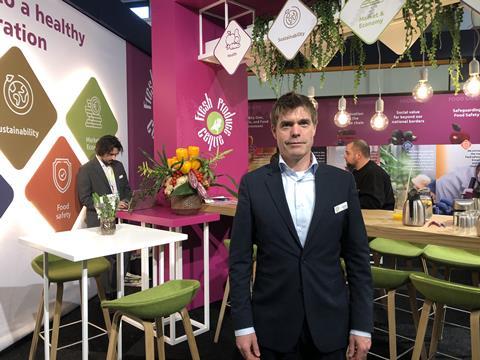Matthijs Montsma of Fresh Produce Centre explains how exporters in the Netherlands are preparing for the prospect of physical inspections at the UK border

Much has been made of the potential impact of physical border checks on UK ports and fresh produce suppliers (see pages 22 and 23), but what about the effect on exporters over in Europe? Well, it’s safe to say that news of the latest government U-turn didn’t go down well in the Netherlands, one of the biggest suppliers of fresh produce to Britain, particularly in glasshouse vegetables.
Fresh Produce Centre represents the interests of Dutch fruit and vegetable businesses and has been monitoring the impact of Brexit on its roughly 300 members since the Brexit saga began. Its programme manager for markets and economy, Matthijs Montsma, says that added border friction and cost have already caused major headaches for Dutch fresh produce exporters – but this disruption has been largely manageable. However, he warns that the introduction of physical phytosanitary checks could be “a mess”.
“I understand that some kind of controls are needed from the UK government to protect Britain from the introduction of harmful pests and diseases, but these checks cannot be a barrier to trade. If the British government goes ahead with its new plan, then trade flows will be badly affected, and Britain could see more empty shelves as a result.”
For Dutch exporters, Montsma says shipping to Britain is already complicated enough. “Adapting to Brexit has added extra costs over the past few years, due to the quality checks now made by the Dutch authorities, adjustments to IT systems, and the training of staff to prepare for phytosanitary checks. However, in general, Holland’s fruit and vegetable industry has so far adapted well to the challenges of Brexit.
“The Dutch fresh produce sector really understands trade and continues to prepare for further changes, but there has been huge disbelief at the UK government’s lack of clarity. There have been so many changes of plan, and tomorrow it will change again.”
Montsma can see Dutch exporters eventually shifting to alternative markets if new border checks add significant time, cost and complication to trade – in addition to the extra paperwork they have already had to contend with since Britain left the EU.
“We will try to prepare for the new arrangements but it’s difficult,” he says. “Communication with Defra has been very challenging, and we’ve been left with lots of unanswered questions. There should be pilots to trial border checks before rolling them out across the board and risking that trade grinds to a halt.”
In addition, Montsma is concerned the checks will have a major impact on the cost of exports, especially on groupage transport. The common user charge (a flat rate levied on every consignment eligible for Border Control Post checks) has yet to be announced and could significantly push up consumer prices of fresh produce.



